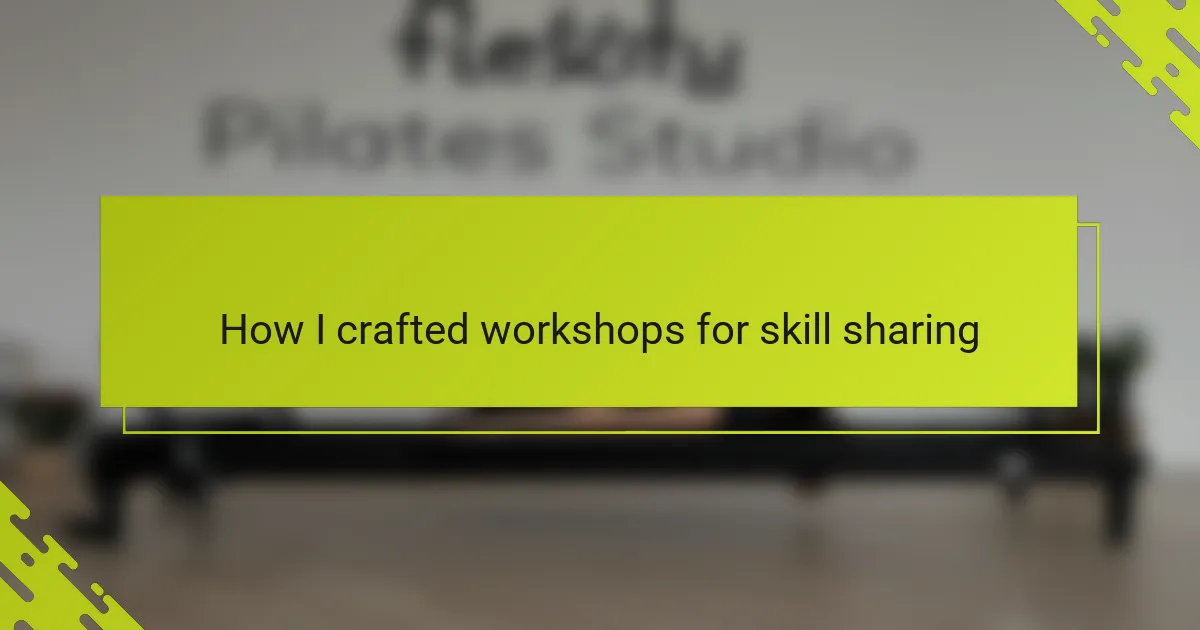Key takeaways
- Queer women culture is dynamic and nurturing, built on shared experiences, resilience, and community support through art and activism.
- Skill-sharing workshops foster connection, empowerment, and resilience by creating accessible, affirming spaces rooted in the lived realities of participants.
- Effective workshops require understanding community needs, fostering trust, and allowing flexibility for organic conversations and diverse participation.
- Inclusivity in activities enhances engagement and connection, emphasizing the importance of emotional and cultural accessibility alongside physical space.
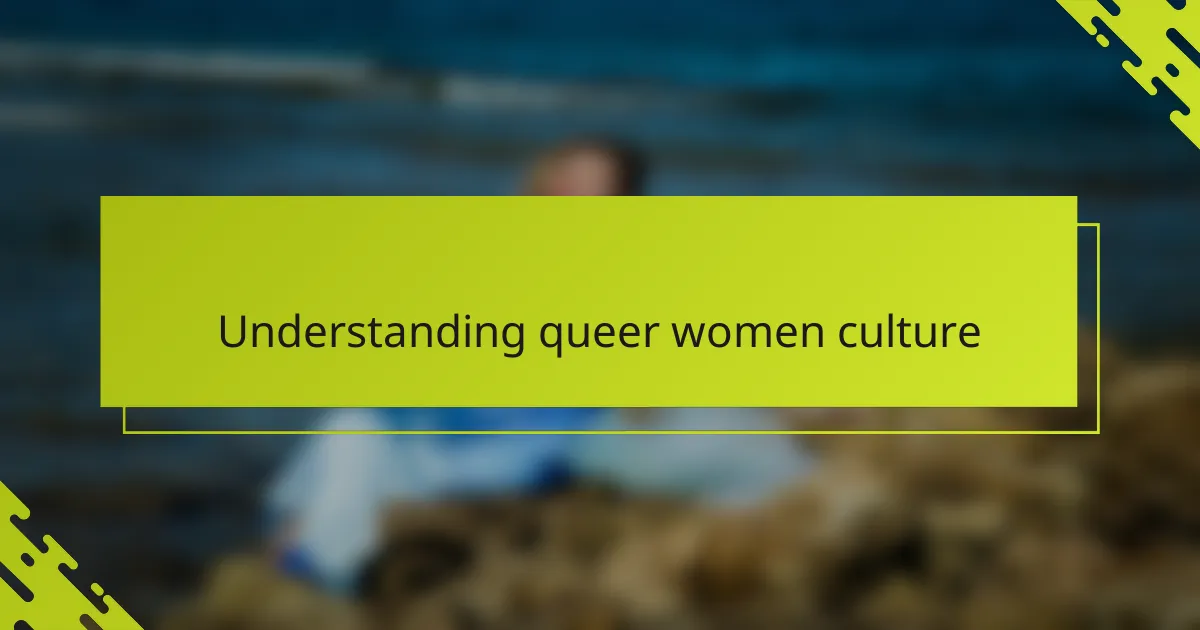
Understanding queer women culture
Queer women culture is incredibly rich and diverse, shaped by shared experiences of identity, resilience, and community. I’ve noticed that understanding this culture means tuning into the unspoken ways we support one another, whether through art, language, or activism. Have you ever felt the warmth of being seen in a space designed just for you? That sense of belonging is powerful.
From my experience, queer women culture blends both celebration and survival. It’s about reclaiming narratives that have often been erased or misunderstood, creating pockets where authenticity thrives. I remember attending a gathering where stories flowed freely, and it struck me how vital these moments are—they nurture confidence and spark creativity.
What really stands out to me is how fluid and evolving queer women culture is; it resists rigid definitions and invites continual learning. This ever-changing nature challenges us to stay curious and open-hearted. How can we truly understand a culture that’s always in motion? Maybe the answer lies in listening deeply and embracing the unknown with empathy.
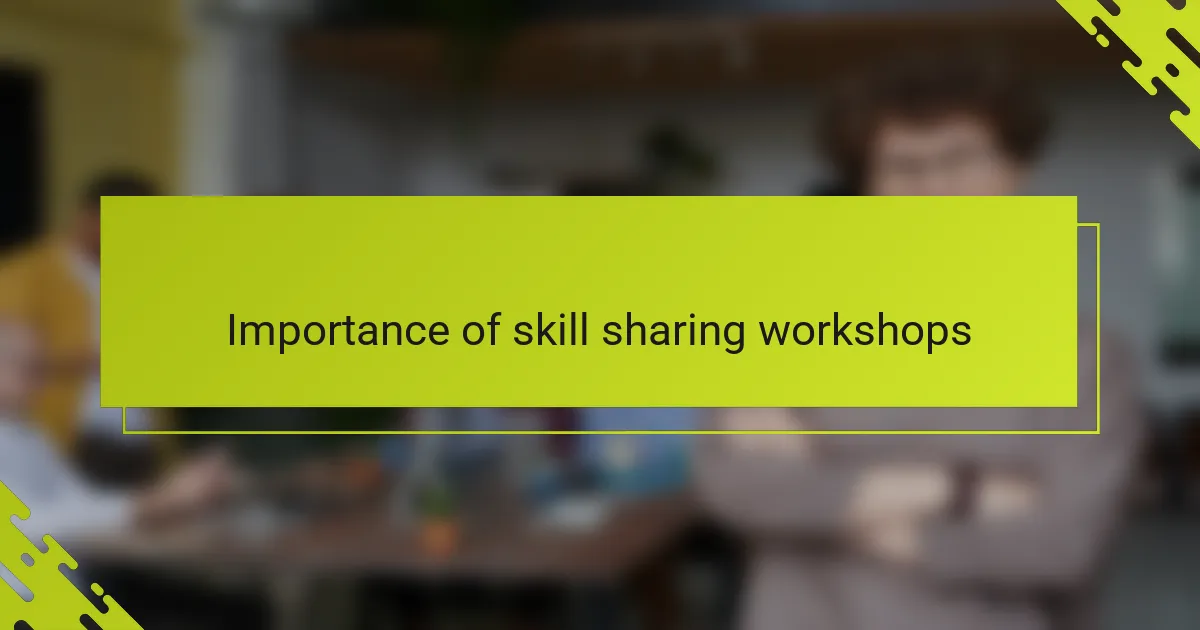
Importance of skill sharing workshops
Skill-sharing workshops create spaces where knowledge feels like a gift rather than a commodity. I’ve seen how passing on a simple skill—whether it’s crafting, cooking, or storytelling—can empower someone to see their own potential in new light. Isn’t it incredible how learning together breaks down walls and builds trust?
There’s something deeply nourishing about these workshops beyond the skills themselves. I often notice how they foster connection and solidarity—reminding us that we’re not alone in our experiences or our growth. Sharing skills becomes more than just an exchange; it’s an act of care and community-building that strengthens our collective resilience.
Have you ever left a workshop feeling more seen, more capable, and more hopeful? That’s the real magic at play. Skill sharing offers a chance to rewrite what education looks like, making it accessible, affirming, and rooted in the lived realities of queer women like us. To me, that’s a powerful form of resistance and healing.
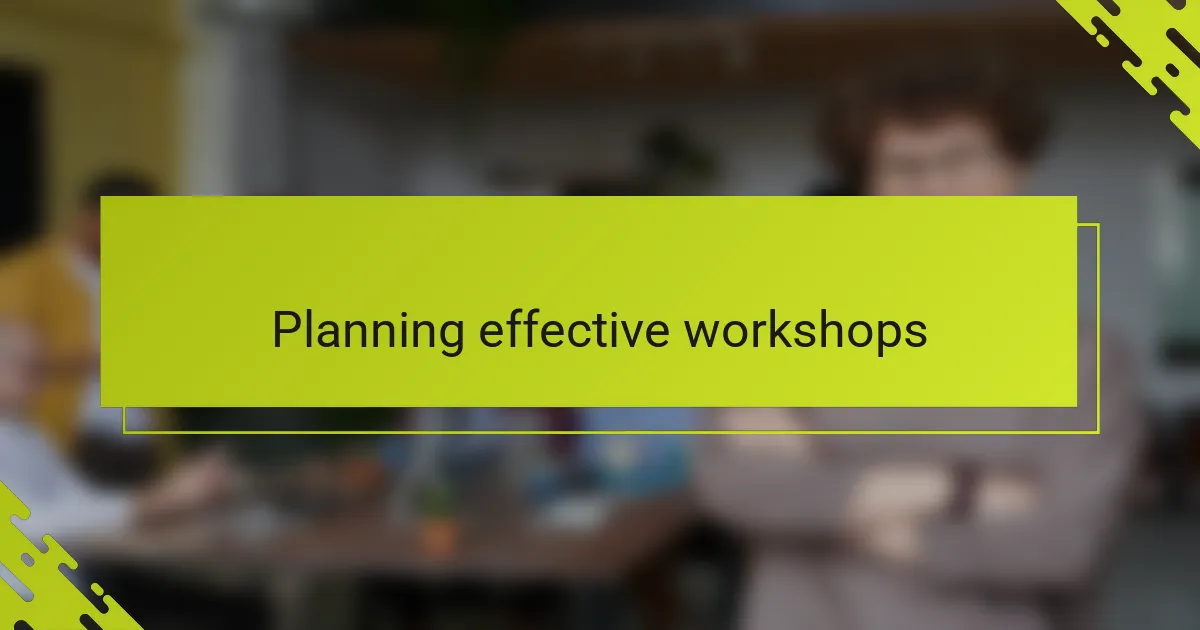
Planning effective workshops
Planning effective workshops starts with knowing who you’re creating the space for. I always ask myself: What skills or stories do the people in this community want to share or learn? When I begin with their needs, the workshop transforms from a simple lesson into a meaningful exchange, making everyone feel valued.
Another thing I’ve found essential is setting an inviting tone right from the start. How can we expect openness if the space doesn’t feel safe? I remember the first workshop I led where I took time to build trust with introductions and icebreakers—it completely changed the energy and made the sharing flow naturally.
Finally, I keep the workshops flexible yet focused. It’s a delicate balance between having a clear plan and allowing space for organic conversations and unexpected insights. In my experience, that’s where the real learning happens—when structure meets spontaneity, giving everyone room to bring their full selves.
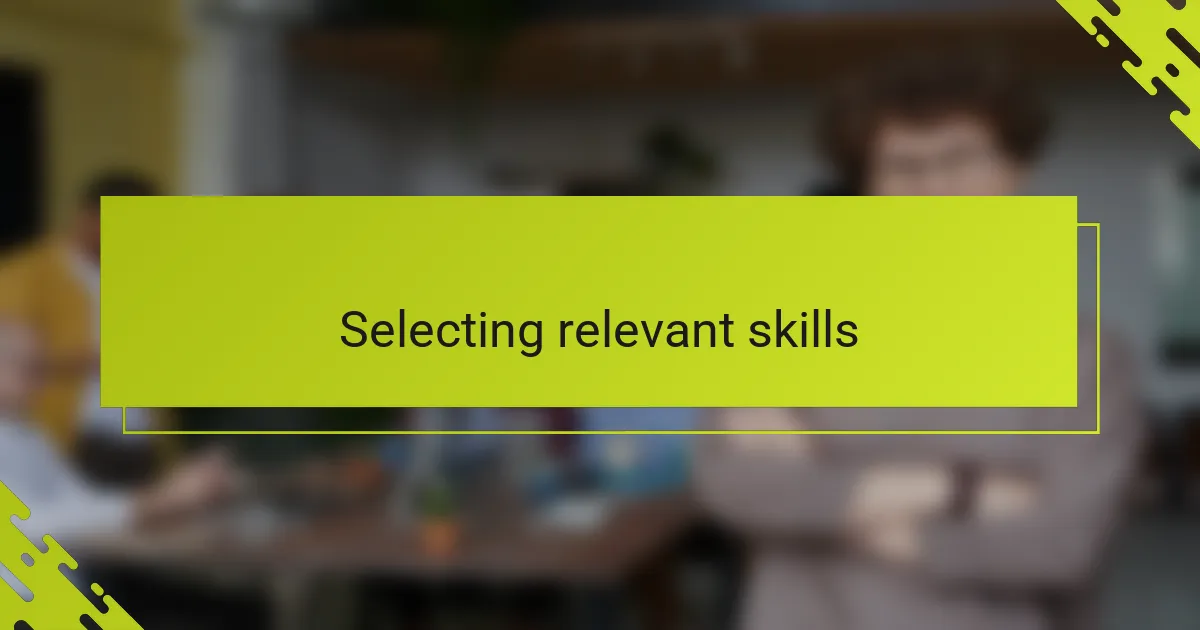
Selecting relevant skills
Choosing which skills to highlight wasn’t always straightforward for me. I asked myself, what truly resonates with our community’s experiences and needs? It felt important to pick skills that weren’t just useful, but also meaningful—ones that could spark confidence and connection.
I’ve noticed that the most impactful skills often have personal stories behind them. For example, when someone shared a skill tied to cultural memory or queer history, it added layers of depth to the workshop. Don’t you think that learning feels richer when it’s tied to identity and lived experience?
Sometimes, I found it helpful to simply listen first—through conversations, feedback, or even social media—to grasp what our community was curious about or eager to teach. That way, the skills selected weren’t imposed, but rather grown organically from collective interest. Have you ever felt the difference when a workshop topic comes directly from your own questions and passions? That’s the moment skill sharing truly comes alive.
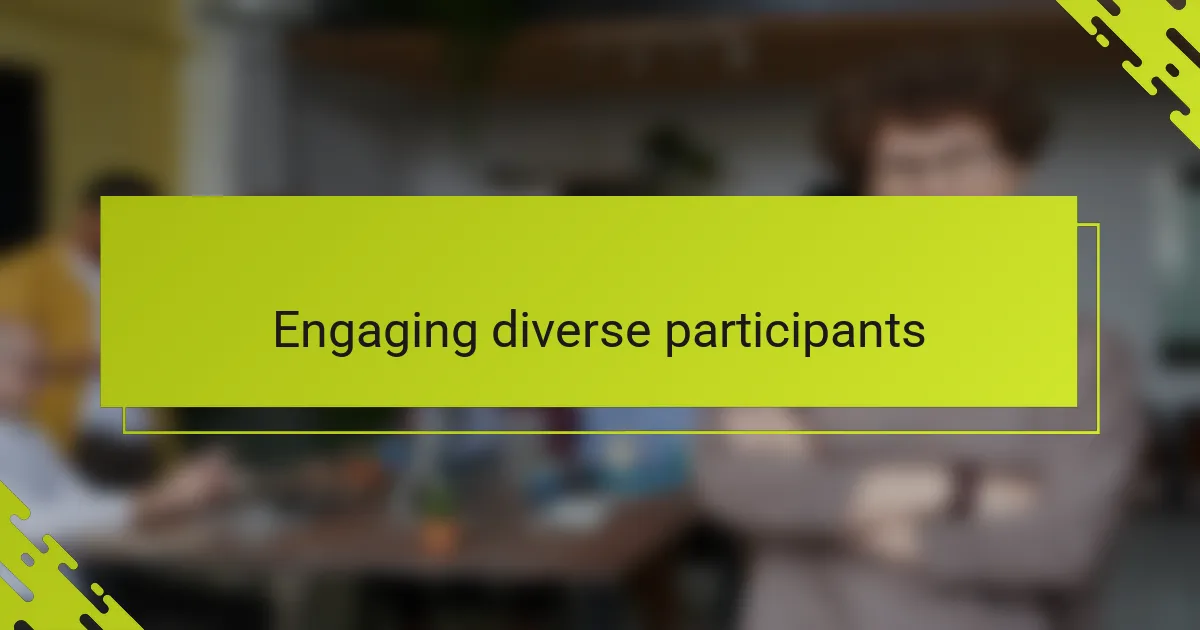
Engaging diverse participants
Engaging diverse participants means embracing the full spectrum of identities, experiences, and backgrounds within queer women culture. I’ve seen how inviting people to bring their whole selves—not just a skill or surface-level interest—creates a richer, more inclusive energy. Have you ever noticed how a single hesitant voice can open up a whole new perspective once it feels safe to speak?
One thing that helped me was intentionally diversifying outreach—connecting through different networks, platforms, and even informal hangouts. When I shared a call for participants in spaces that felt welcoming to folks often left out, the workshop’s dynamic shifted completely. It became less about teaching and more about co-creating, fueled by a mosaic of stories and knowledge.
Sometimes, I wonder how often we overlook the quiet ways people engage—through art, laughter, or simply showing up. I try to honor those subtle participations by creating varied modes of involvement, from hands-on activities to gentle listening circles. That way, everyone finds a way to connect on their own terms, and the workshop becomes a living reflection of our community’s diversity.
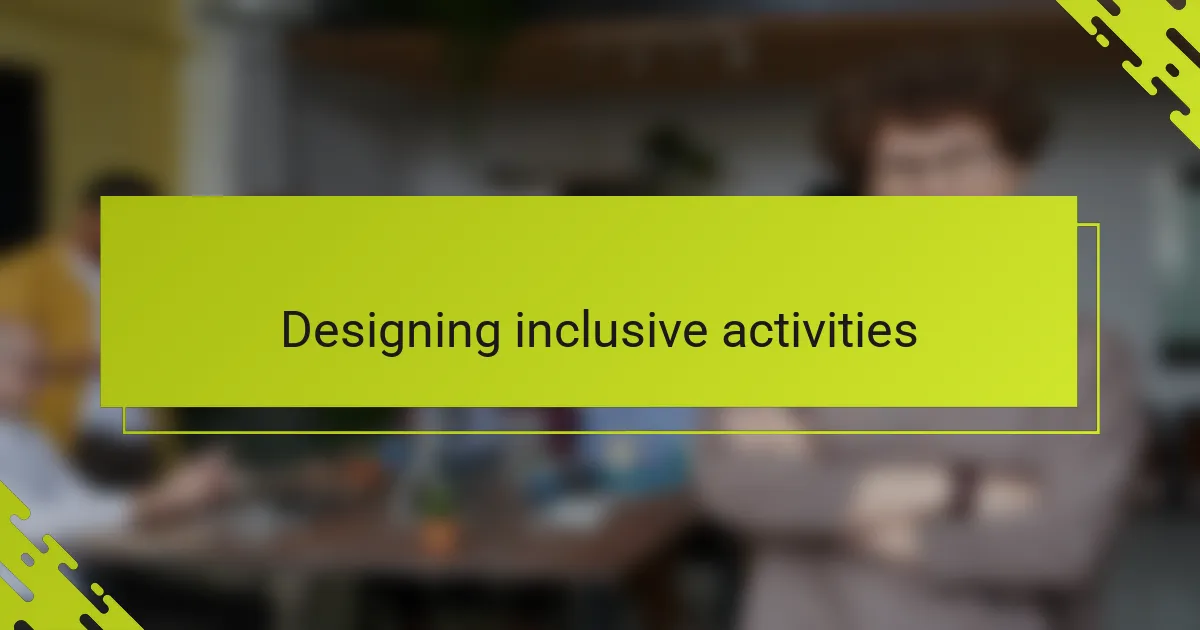
Designing inclusive activities
Designing inclusive activities means weaving a space where every person feels not just invited, but genuinely seen and valued. I remember once creating a group exercise where participants could choose how they wanted to contribute—through words, art, or movement—and it completely shifted the atmosphere from hesitant to joyful openness. Isn’t it incredible how giving options encourages people to bring their authentic selves forward?
I often think about accessibility, too—not just in terms of physical space, but emotional and cultural accessibility. How can we ensure the activities don’t unintentionally exclude someone because of language, comfort level, or experience? In my workshops, I try to keep instructions clear and simple, offering multiple ways to engage, because inclusion thrives on flexibility.
Sometimes the small things make the biggest difference. Like checking in with folks about pronouns or allowing breaks when needed, these gestures create trust and respect. Have you noticed how these thoughtful touches soften the room and invite deeper connection? It’s in these details that inclusivity truly takes root.
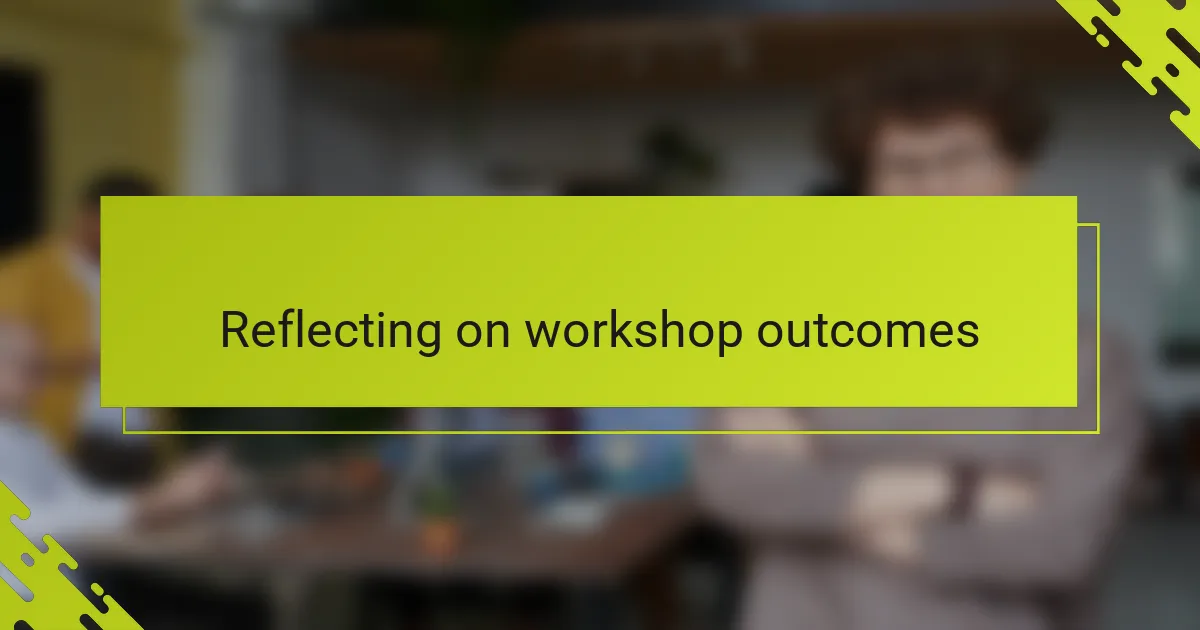
Reflecting on workshop outcomes
Looking back on the workshops I’ve led, I find the most revealing moments come from unexpected feedback—those candid reflections that spill out when people feel safe enough to be honest. Have you ever been surprised by what resonates most with participants? I certainly have; sometimes a simple technique sparks profound shifts in confidence or connection that data alone could never predict.
Tracking outcomes goes beyond counting heads or checking boxes. I focus on the quieter, deeper changes—like someone discovering a new sense of belonging or realizing their voice matters in this community. One workshop stay with me vividly: a participant shared afterward that the space helped her reclaim parts of herself she’d long hidden. Moments like that remind me why this work matters so deeply.
I also ask myself: What could I do differently next time to deepen the impact? Reflection isn’t just about celebrating wins but holding space for growth. I’ve learned to embrace imperfections as invitations to evolve workshops that truly honor the complexity and beauty of queer women culture. Doesn’t it feel rewarding when you see that openness ripple through the group?
